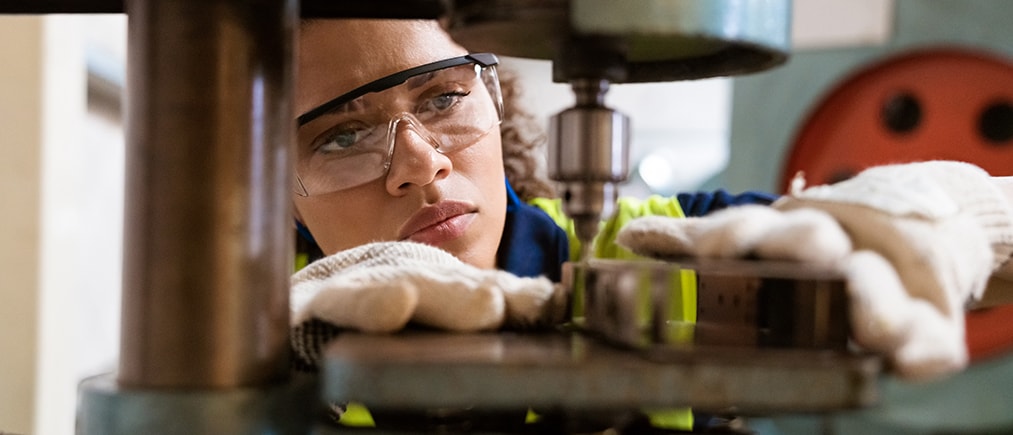Any business in Canada that is part of the food, pharmaceutical or dietary supplement manufacturing process needs to be familiar with Canadian Good Manufacturing Practices (GMP). Failure to comply with the GMP protocol could result in actions such as recalls, seizure or forfeiture of products, and revocation of licenses, all of which could have serious financial repercussions and disrupt production.
GMP is a pillar of the quality assurance process that seeks to ensure that products are manufactured in a consistent manner that meets or exceeds mandated safety and quality standards.
The basic components of GMP boil down to what's often referred to as “the five P's." These are premises, people, products, processes and procedures.
- Premises: The facility must be clean, organized and set up in a way that prevents cross-contamination.
- People: Staff must be properly trained, with clearly defined roles and responsibilities.
- Products: Detailed specifications for raw materials and other components must be established and recorded.
- Processes: Critical steps must be specifically defined, consistent and well-documented.
- Procedures: Documentation must be available, and there must be a process for monitoring to ensure all processes are followed.
What are current Good Manufacturing Practices?
Good Manufacturing Practices is a set of formal, well-defined regulations established and overseen by Health Canada, the public health branch of the federal government of Canada. Health Canada provides comprehensive information about GMP, including the latest updates and guidelines to help businesses ensure they are in compliance.1
The agency also conducts inspections to verify that companies comply with these rules. Compliance with GMP regulations is required in order to get and maintain a required establishment or manufacturing license.
Basic GMP guidelines
GMP guidelines are detailed and complex and have specific elements that relate to certain operations or business categories. But there are some basic principles of GMP that are applicable to every operation.
- Quality assurance. Manufacturing and inspection processes must be clearly established, documented, and followed. Strict enforcement of GMP standards must be maintained at all times.
- Monitoring and evaluation. A routine review and assessment process must be implemented and followed. Formal quality standards must be established to ensure consistent production. Inspections must be conducted regularly to maintain quality control standards.
- Clean and safe facilities. A safe, hygienic environment is essential to prevent any type of contamination that could create a health hazard. Sanitation guidelines also dictate the proper disposal procedures for waste materials.
- Storage and handling of raw materials. Many of the products used in food or drug manufacturing are sensitive or perishable, and must be handled according to safety standards that prevent them from being compromised or negatively affected in any way.
- Skilled, professional people. Staff members involved in any aspect of the production or distribution process should be well-trained and knowledgeable about GMP standards, especially as they relate to safety. Following an established set of processes and procedures helps ensure that all of staff know exactly what is expected and required, which in turn allows for a consistent operation that maintains or exceeds quality standards as identified in GMP rules and regulations.
- Documentation. An organized, extensive record-keeping system is a mandatory aspect of a GMP program. This provides proof that all critical processes were followed, and also establishes a historical record of inspections, sanitation procedures, and other important events. Proper documentation is required for GMP compliance.
What is the importance of GMP?
GMP is important for several key reasons. Products consumed or ingested by the public must be produced according to strict safety criteria. Failure to adhere to this established and mandated protocol could create a hazardous or dangerous situation that may put consumers at risk.
In addition to protecting public safety and well-being, there are also potential business-related benefits for companies that are diligent in maintaining GMP compliance.
- Avoids greater expense later. Being proactive in implementing a GMP program right from the start may be more cost-effective than trying to adapt established routines later. Also, violations of GMP regulations could result in fines or other penalties with considerable financial repercussions.
- Establishes positive brand reputation and recognition. Demonstrating that safe, high-quality procedures are a priority will help strengthen your company's image among the public, stakeholders, and employees.
- Improves efficiency. Creating an organized system with well-documented procedures can make for a more efficient and productive operation. Good record-keeping lets staff members find what they need quickly, helping to minimize disruptions or waste time.
The future of GMP
As food and drug industries—and the public in general—become more knowledgeable and concerned about the quality standards of products we consume, it is possible that there will continue to be an even greater focus on strict GMP standards.
Government regulations related to these industries are constantly changing, so GMP standards and industry-accepted best practices will need to continually evolve and adapt to reflect the latest legal requirements.
Forward-thinking businesses will stay informed about proposed government regulation changes or other initiatives on the horizon, so they can react quickly or—better yet—take a proactive approach that will help put them ahead of competitors who may end up scrambling later to maintain compliance with new rules.
Find out how American Express can help support your business goals.
This article is intended for general informational purposes only and does not constitute legal advice or an opinion on any issue. It should not be regarded as comprehensive or a substitute for professional advice.



